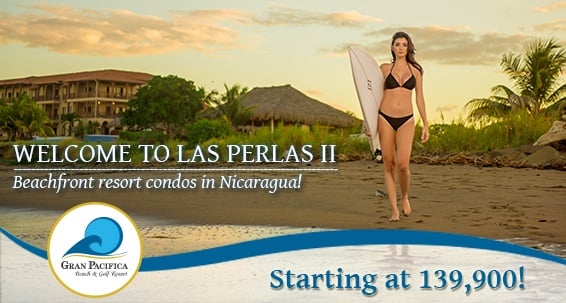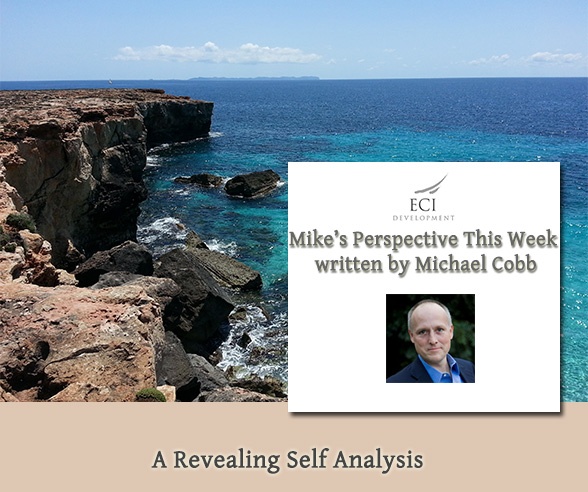
Dear Reader,
Are you thinking about moving overseas? Perhaps investing overseas? There are many prudent steps in the process of finding a new home overseas for vacation, living, and investing, but how do we find out what we need to know? The 15 Questions in the ECI Consumer Resource Guide is a great start, but it only covers “what” you plan to buy. How about the “why” and knowing, “What factors are critically important to me?” Self-discovery is key.
For investment buyers, understanding what is important for the consumer is critical in helping to guide and strengthen our investment decisions. So, even though this article and associated links are specifically about factors of self-analysis that we should consider before moving overseas, if you plan to invest in property outside the U.S. or Canada, then take the time to read the article and perhaps complete the survey as well. It will be time well spent.
The process of discovery can be like a journey itself. After really thinking about whether you can (or want to) live in a foreign country, you must begin the process of deeper self-analysis. Analyze why you want to move. What are the factors that make you desire a new location? “We are our choices,” as Sartre once said.

Part one of the analysis is to think about the items, conditions, and qualities that you don’t have at home that you desire in your new location? What are things from your current home you want to maintain? These are fundamental questions you should answer to ensure that you are moving abroad for the right reasons for you, and that you’ll ultimately end up in the best place for your long-term satisfaction.
The second part of self-analysis is to think about what is important in your life now, and must be present in your new life abroad. It is critical to note important hobbies and activities, and be sure that your new home accommodates these aspects of your ideal life. These are the easy factors to identify. The same with language, laws, and other pieces of the puzzle discussed generally. But what about things like churches, associations, service organizations, clubs, and other social venues where you can make friends and find peers?
Simply put, decide what is important in your life (and to what degree) before you start choosing locations and looking at homes. Then, available locations will drop into line based on the deeper needs and fundamental reasons you wanted to move in the first place - producing comfort, satisfaction, and lasting joy in your new home.
Why Do We Want to Move?
This might seem like an overly simple question. You might be thinking, “Of course I know why I’m moving!”, but do you? The question is far deeper than most would expect, and just as important. With over 20 years of experience serving people in the Central America region, when I look back and examine the reasons why people have moved overseas other than for job or family, there are generally two motives; people are running away from something at home, and/or people are running towards something in their new location.
Running away and running towards. These are the two main motivations for people moving overseas. Which motivates you the most? Know this and you’ll understand more about yourself than most people.
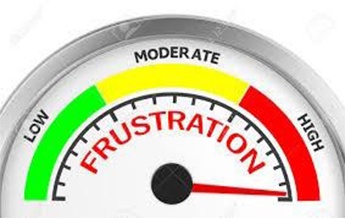
By the way, one reason is no better than the other. In many cases, the answer will be a mixture of both motives, but taking time to ask yourself this question and seeing which motivation is stronger, will help you truly understand your basic reasons for wanting to move. You’ll also learn whether or not the absence of one thing back home, or the presence of another thing overseas will actually lead to a happier life.
Many people leave the United States or Canada because they are running from something. It could be a decision motivated by politics, or it could be a divorce, a mid-life crisis, stressful job, the frustrations of living in a major city - or it could be something they cannot put their finger on that has been making them unhappy. There is nothing wrong with moving abroad to escape from the pressures of your life as it is. There’s an expression: “Everywhere I go, there I am!” Determining exactly what it is you are running away from is important, because one thing you cannot run from is yourself.
That said, if you have strong disagreements with your political climate, your job, spouse, city, or anything else, are you able to move abroad? If so, can you be assured that those conflicts will not impact your life in the same way in a new location? If yes, moving is probably right for you, and a change in location will alleviate the source of discomfort or pain. Life in a new home overseas may very well be much, much better.
If you are not running from, then what are you running towards? What are the specific factors that make you want to relocate? Is it a lower cost of living, easier access to organic foods, stretches of open beach, inspiring mountain vistas, the fact that you are a “digital nomad” and can work from anywhere, or perhaps you see a chance to serve others in some special way now that your first or most recent career is finished. Identifying these “running towards” motivators will help you establish and narrow your criteria. Then you can begin your search for a country, a region, and the specific property you’ll eventually call home.

Diving, Snorkeling, and Fishing in Belize

Playing Golf at Gran Pacifica
The longer people research the decision to move overseas, the more they generally discover that there are plenty of great reasons to be running towards their new home. Then, when moving deeper into this research, you’ll uncover more and more reasons to move abroad. When you have a long list, it is then important to prioritize these reasons.
What you’ll see covered next is what I have discovered to be the single biggest factor responsible for relocation pursuit; A higher quality of life and a lower cost of living. This is the principle driver of emigration out of the United States and Canada after job relocation.
The concept of a higher quality of life at a lower cost may seem contradictory and is what I call “The Paradox.” Simply put, in Latin America, you can almost always enjoy a higher quality of life than you are currently living in the United States or Canada, and it will cost you far less money.
So, you might be asking yourself right now, “How exactly can I enjoy a higher quality of life for less money?” I will explain. Welcome to "The Paradox".
The Paradox.
"The Paradox" of a higher quality of life that costs less manifests itself through many different areas of life in Latin America. It should not come as a surprise to know that things are generally cheaper in Panama, Chile, Costa Rica, Nicaragua, Belize, or Ecuador than they are in the United States or Canada, but how much less? And what kinds of things cost less? Where are the savings? To understand, we’ll break down the many ways your life can become greatly enhanced while simultaneously noting how much less expensive life is in Latin America.
The first and most obvious example is rent and/or cost to maintain a residence. Just for a general frame of reference, in Ecuador or Nicaragua, after you’ve purchased a home, you can live well on $800-$1,000 a month, very well on $1,500-$2,000, and superbly on anything north of $2,000. But suppose you want to rent; that would cost around $400-$1,500 a month depending on the size of the home and location.

Chilling in Springtime Everyday in the Highlands
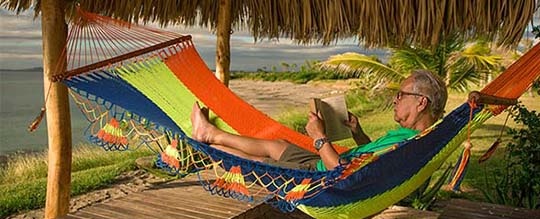
Chilling at the Beach in Nicaragua
Also, forget about heating bills - they are simply non-existent in Nicaragua. But you may want an air conditioner, especially in the evenings during the rainy season. Most homes, however, are built with “split systems,” air conditioners that are room-specific. It is therefore possible to cool your bedroom at night without wasting money to cool the rest of the house. Ceiling fans are very common as well, providing nice airflow to keep you cool without A/C.
Ultimately, however, if you are building a home, focusing on breeze and airflow throughout are key factors to consider. This is covered later in another article, but generally, it is possible to live without, or very limited, A/C - cutting back on utility bills dramatically.
All countries are different in terms of cost of living. In Belize and Panama, for example, $1,500 a month (plus rent) is the minimum to live well, while a budget of $2,000-$2,500 a month means you are living superbly. In Chile, Colombia, and Costa Rica, your cost of living is roughly $2,000-$3,000 (plus rent), and anywhere north of that, you are golden. The lower cost of living in each country is not just part of the appeal of moving overseas to Latin America, but it is also important for your financial planning. You have the means to decide how to spend any leftover savings you may have after moving to a far more affordable lifestyle.

Cost savings are only the first part of the equation. The second part is how life actually gets better, and this next section is maybe one of the best examples of "The Paradox”- food. Here in the United States and Canada, we are all obsessed by the organic, health food craze. It has made everyone yammer on and on about how great Trader Joe’s and Whole Foods are, but it’s expensive to live this way. To quote one of my friends, “Whole Foods? More like whole paycheck!”
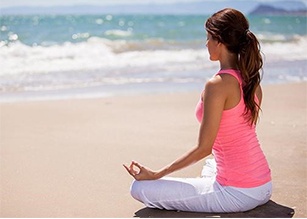
Tranquil Beaches for Yoga in Costa Rica
Organic foods are so popular and in such limited supply in the United States that you end up paying through the nose to get them. In Latin America, it is simply the opposite. The fruits, vegetables, meats, cheeses, and eggs that you buy from your local market (not the supermarket) are almost all organic and extremely affordable. The reason for this is, in the United States and Canada, chemicals are cheap and people are expensive. In Latin America, the opposite is true.
In the United States it makes economic sense to have an airplane fly over acres and acres of farmland spraying pesticides. In Latin America, however, you have production on much smaller farms, most of which are family run. The cost of labor is free or next to free, which results in well-cared-for, hormone and pesticide-free fruits, vegetables, meats, cheeses, and eggs. You get the same Whole Foods quality of product for an extremely low price, and you’ll probably get to know the farmer too.

Wholesome Organic foods
Another relocation factor that brings people to Latin America for a higher quality of life is that you can enjoy a life with no chores. I will repeat, there are no chores. In many places in Latin America, you can hire a maid for $125 a month. Other places it may be “as much” as $400 per month for a full time, and if you desire, live-in maid. That is about the cost of a gym membership in some cities in the United States.
During the 14 years we lived in Nicaragua, my wife and I hired a full-time maid and a part-time gardener. And for those 14 years, neither of us washed a dish, made a bed, cleaned a bathroom, did laundry, cut our grass, or swept a floor. Sure, some of those tasks only take 15-30 minutes or so; but, when you add them all up, it results in hours and hours of increased free time every week.
The important thing to consider is not that you are just spared the hassle of washing dishes and folding clothes. By hiring a maid and gardener, you are given much, much more free time to spend on the important things in life, the fun things in life, and perhaps the significant things in life. This brings me to the second part of the self-analysis…
What is Important in Life?
We need to decide, “What is important in my life?” There are tons of books written on this subject, and this article just barely grazes the top layer. Please read on without fear of some deep discussion or psychological analysis. I’ll bypass the many philosophical elements and simply focus on the day-to-day items, because the process of discovering what is important day-to-day is absolutely necessary. We need to figure out exactly what criteria will bring you the greatest satisfaction for your life abroad. This process of self discovery helps you identify the best attributes in the locations overseas where you may plan to live.
For instance, one question you might want to ask yourself is, “How close do I want to live to an English-speaking church?” For some people, going to church every week or more is a very important part of their lives. If they do not have a religious community with whom they can connect on a regular basis, they will not be happy. It’s easy to assume that there will be a church to attend. But is there one where you can understand the service and communicate in a language where you can make a new network of friends? Knowing and assuming are very different. Perform the due diligence and determine if there’s a church you can attend and how far you are willing to travel to go to church, if that’s what you deem a necessary part of your new life.
Perhaps it is not a church that you feel you need to live close to, but rather a shopping center, or maybe it is a community theater that performs plays that you can attend. Other activities like movie theaters, golf courses, tennis courts, and a country club are nice diversions and good places to meet and spend time with others.
Other ways to engage are through service. Rotary Clubs, Lions, Kiwanis, Operation Smile, the Wheelchair Foundation, and similar organizations can all be a big part of a high quality of life. Be sure to reach out and engage, and remember, whatever your interests and needs are, it is important to take note of what specific activities and organizations need to be present in your new life and how closely they need to be to your home.
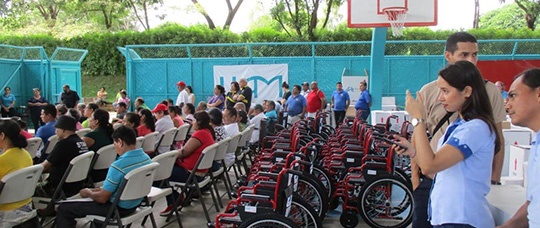
Wheelchair Foundation Donation

Gran Pacifica Clinic Partners
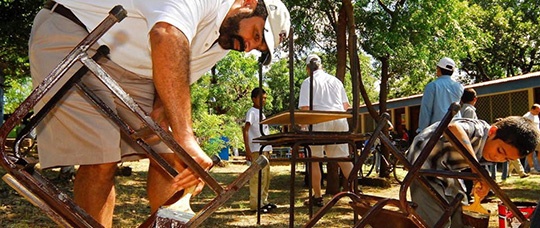
Franco Harris School Painting
Many other questions of self-analysis revolve around your day-to-day lifestyle. You will need to ask yourself, “Do I want to have a car, or do I want to be able to walk everywhere or use public transportation?” This is a question that, if not properly assessed, will impact your life every day.
Imagine a New Yorker that never owned a car, moving to a remote mountain community where public transport is spotty and a car is really a necessity. Will they adapt well to that new necessity of life? Maybe not. On the other hand, imagine a couple from Idaho that drove everywhere their whole lives and naturally assumed they would need a car anywhere they moved. In Granada, Nicaragua; Cuenca, Ecuador; Casco Viejo, Panama; or San Pedro, Ambergris Caye, Belize, for example, a car is not necessary. So, the couple thinks about it and says, “Hey, it might be nice living in a place where you can walk everywhere and don’t need a car. Let’s give it a try!”
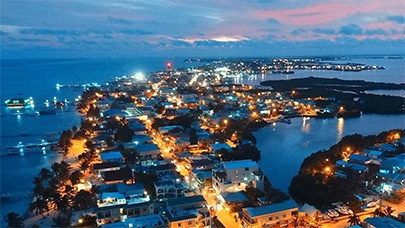
San Pedro, Ambergris Caye, Belize
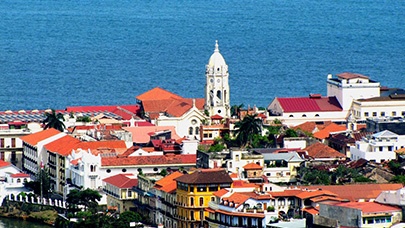
Casco Viejo, Panama
Making a checklist as you analyze your priorities is critically important. Group each aspect under: absolute must; would like to have, but not critical; and don’t care. As you read and think about each topic of discussion, determine its importance - and in the end, you will have a much clearer vision of what is important in your new life and which countries can provide that for you.
A very complete self-analysis tool is available for you to learn more about what kinds of factors will make a difference for you and what may not. You’ll find it at the link below. Once you begin to narrow the search field of possibilities down to a few top choices, then you can visit and experience them firsthand. The world is a big place with many great options. Finding the best fit for you takes some work, and the first part of the work is knowing yourself.
Click here to use our self-analysis tool.
Until next time,
 Michael Cobb
Michael Cobb
Chairman and CEO
ECI Development
Nicaragua/Belize/Costa Rica/Panama
Contact me
